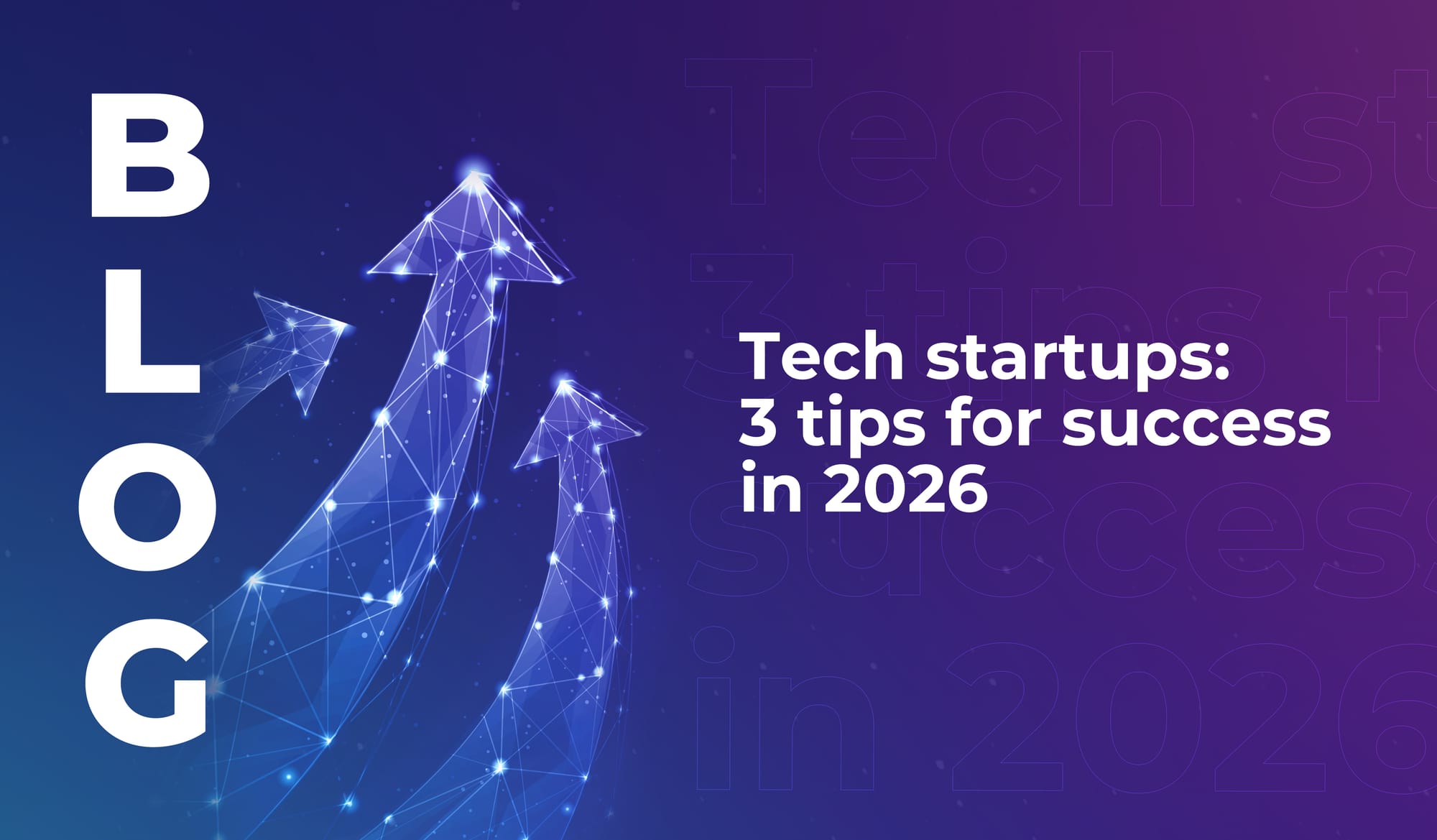
From pilots to scale: why GTM execution wins in 2026
Why 2026 is the year startups have to move beyond pilots. New research shows go-to-market execution, not demos, is the real growth advantage.


Investing usually isn’t the first career path people think of when they decide they want to work in tech. From the outside, it’s the engineers building breakthrough tools or the designers crafting sleek interfaces that get the most attention.
But once you cross to the inside of the industry, you start to notice another critical (and often underestimated) role shaping the future of the tech world: the investor.
It’s a career path with real power to create change – by backing tech that has the potential to make a real difference. Investors spark innovation and economic growth, and can level the playing field for new founders.
From the outside, it’d be reasonable to assume that investment is mostly about making money. But once you’re on the inside, you see that’s not the case – it’s about making a mark.
According to CB Insights, global VC investments in tech reached $285 billion in 2023. That’s hundreds of billions of dollars being channelled into ideas with the potential to shape the future – whether it’s AI, climate tech, or health innovations.
And when we asked Hasnae Taleb (Chief Investment Officer at Ento Capital) if there’s one thing she wishes everyone knew about investment banking, she said:
“Investment banking is a complex industry, but it is very rewarding. One thing I wish everyone knew is that it is not all about making money. Investment bankers play an important role in helping companies grow and create jobs.”
Taleb also highlighted the role of investment in emerging markets like Saudi Arabia, where the tech scene is booming. “The Saudi Arabian ecosystem has experienced rapid growth in recent years. There are over 1,600 startups in the country, supported by a network of venture capital firms and government initiatives. The government is actively working to attract foreign investment and position the Kingdom of Saudi Arabia as a regional hub for innovation.”
This kind of investment creates jobs, unlocks solutions to complex problems, and builds new industries. It’s not just about fueling companies and getting a return.
Tech investing can be an incredibly personal and values-driven career. What you choose to fund says something about what you want to see in the world.
Salomon Aiach (Co-Founder at Origins Fund) put it perfectly: “Our goal at Origins is two-fold. We strive to support game-changing companies that disrupt their respective industries and also make a difference in people's lives.”
Aiach’s focus is on early-stage startups with real-world impact. His career journey – from launching Marcus at Goldman Sachs to leading startup strategy at Meta France – has sharpened his ability to spot technologies that aren’t just interesting, but important.
“I've always had a passion for game-changing ideas and innovation that can revolutionise how consumers experience technology,” Aiach said. And that passion is now channelled into Origins Fund, which also stands out as a champion of athlete-led investing in Europe. Aiach is helping forge a new path for investors who want to combine influence, capital, and purpose.
Reema Khan (CEO at Green Sands Equity) is another investor driven by impact. “From Generative AI to Quantum Computing to the Space Industry, while we are strengthening our tools, we are also strengthening human beings by leaning into Biology and Neuroscience.”
Her portfolio speaks for itself. She’s backed companies like Paradromics, which is developing a brain-computer interface for people with motor impairments, and Pasqal, which is building next-gen quantum computers. This is deep tech with deep potential – and Khan is at the forefront.
She also believes in Saudi Arabia’s potential to become a global leader in innovation. “While the UAE has become more of a service economy, Saudi Arabia has a real chance at becoming the innovation economy.”
Investment, both private and public, is a huge part of that. Saudi Arabia is nurturing a thriving investment ecosystem with specific goals to enable innovation; making it a good place to be for investors and founders alike.
If you’re just starting your journey, how do you step into the world of tech investment?
Taleb offered four practical rules. She was speaking for female investors in particular, but her wisdom applies to everyone.
She also has her own clear criteria for investments: “the long-term growth potential of the company, the strength of the management team, the company's competitive advantage and the overall risk profile of the investment.”
These are building blocks for a career with real-world impact.
If you're serious about becoming a tech investor, one of the best things you can do is surround yourself with experienced, passionate people in the space. That’s where events like LEAP come in.
Reema Khan was one of 1,600 investors who joined LEAP 2024, and she’s not the only one who found it valuable. Taleb described her experience as “Wonderful! One of the best events I have been to. I was particularly impressed by the number of young people who were interested in learning about investing.”
LEAP 2026 is already on the horizon – and it’s your chance to learn from the world’s top investors, scout the next wave of innovation, and start building your own impact-driven portfolio.
Tech investing is a catalyst for innovation and change. It’s your opportunity to shape the kind of future we all want to live in. So if you’re driven by more than just profit, and you want to play a role in building something bigger – investing might be exactly the tech career you’ve been looking for.

Why 2026 is the year startups have to move beyond pilots. New research shows go-to-market execution, not demos, is the real growth advantage.

Three practical, expert lessons on why startups fail – and how business models, regulation and adoption unlock real tech value.

After years of acceleration, tech is entering a more selective phase. In 2026, progress won’t be measured by how much you do – but by how clearly you choose.

Why 2026 is the year startups have to move beyond pilots. New research shows go-to-market execution, not demos, is the real growth advantage.

Three practical, expert lessons on why startups fail – and how business models, regulation and adoption unlock real tech value.

After years of acceleration, tech is entering a more selective phase. In 2026, progress won’t be measured by how much you do – but by how clearly you choose.